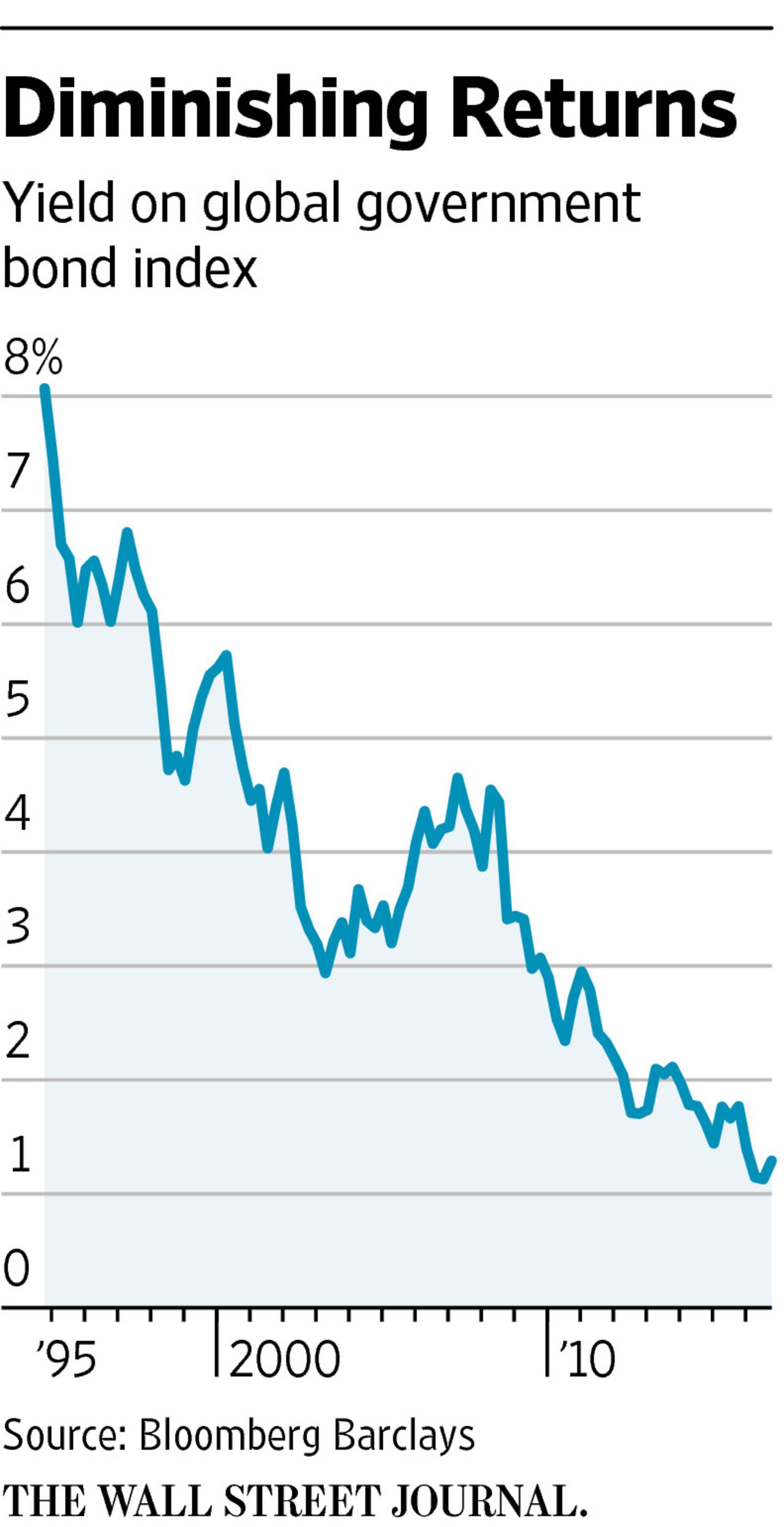A new Wall Street Journal article, Era of Low Interest Rates Hammers Millions of Pensions Around World, documents how declining bond yields have negatively impacted pension funds globally:
Managers handling trillions of dollars in government-run pension funds never expected rates to stay this low for so long. Now, the world is starved for the safe, profitable bonds that pension funds have long needed to survive. That has pulled down investment returns and made it difficult for funds to meet mounting obligations to workers and retirees who are drawing government pensions.
…
Pension officials and government leaders are left with vexing choices. As investors, they have to stash away more than they did before or pile into riskier bets in hedge funds, private equity or commodities. Countries, states and cities must decide whether to reduce benefits for existing workers, cut back public services or raise taxes to pay for the bulging obligations.

PERS responded to this trend by moving more money into stocks. As we discussed last week, this dramatically increased the risk associated with the portfolio, which government accounting standards ignore completely.
For example, there is currently a 10 percent chance that PERS will experience an additional shortfall of at least $6.56 billion in a single year — an amount equal to nearly 65 percent of all state and local tax revenue combined.
At the very least, Nevada lawmakers should consider whether or not they are comfortable with this level of risk, and what level they would be uncomfortable with. As the Harvard’s John F. Kennedy School of Government noted in a study earlier this year, improper accounting standards that do not account for risk “in any meaningful way” mean few policymakers have access to this critical information.
Nevada lawmakers should immediately seek to obtain this information from PERS so that they, and the people they serve, can have a full accounting of the costs they are responsible for.
For NPRI’s analyses of the Nevada PERS situation, visit: http://www.npri.org/issues/detail/pers
